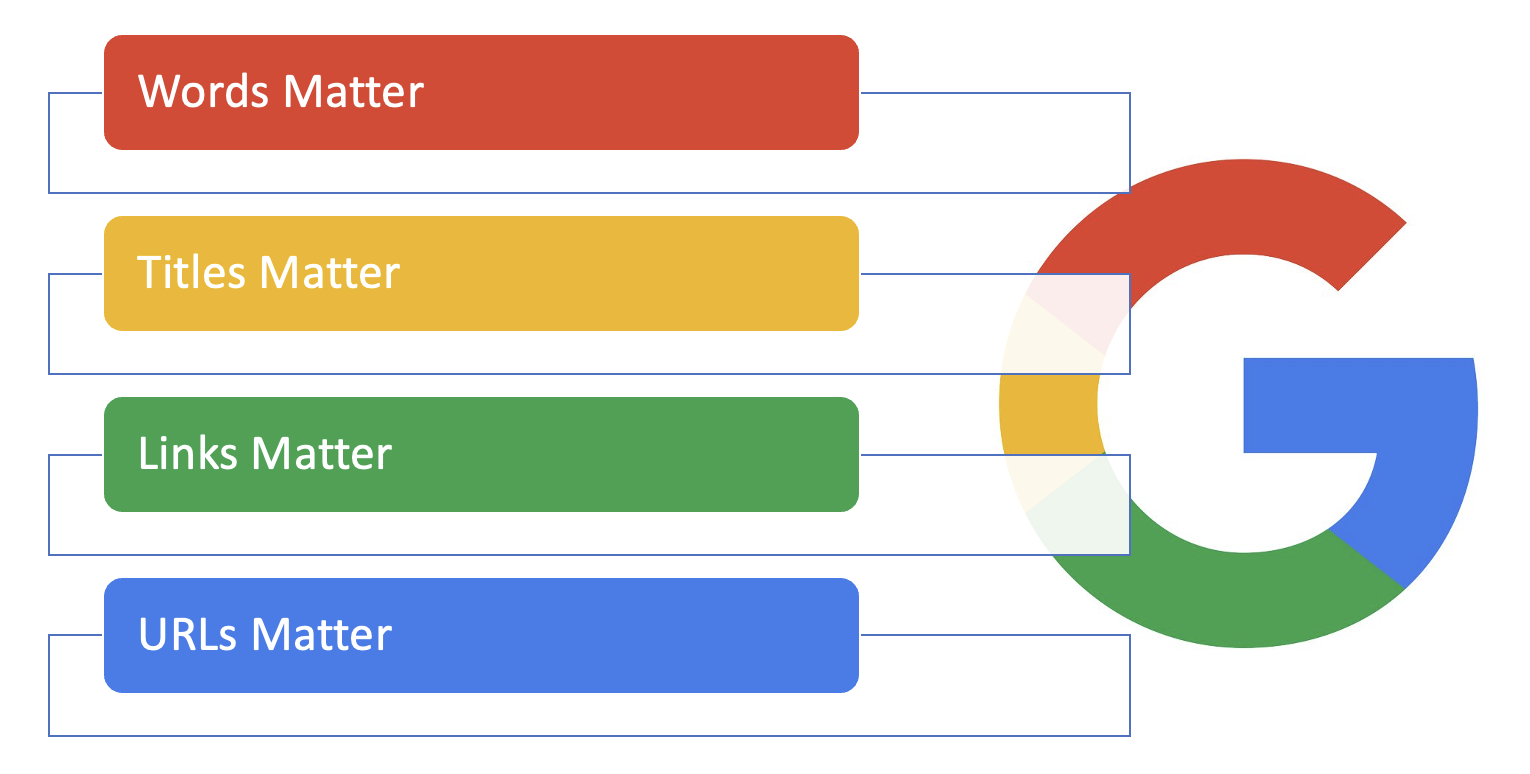
When it comes to on-page SEO, focus on what matters most.
Well organized and keyword optimized content earns rankings. Things such as your domain URL, page titles, content headings, content formatting, internal links, and image filenames represent quick wins for improving your search engine optimization.
Descriptive Domain Name:
One of the first signals search engines and people rely on is the domain name of your website.
- Make sure it is descriptive and easy to remember (e.g. lakediefenbakersailing.ca)
- Purchase additional domains related to your business and point them to your site.
- Purchase both .com and .ca versions of your primary domain.
Website Page Titles:
A page’s “title tag” is an element that specifies the title of a web page and is used by search engines when displaying search results.
- Each page on your website needs a descriptive “title tag” that can be 50-60 characters long. Incorporate keywords, descriptors, and company name.
- E.g. Sailing Lessons on Lake Diefenbaker | Full-Day Courses | Dief Sails
- At the very least, have a unique title tag for your home page. Home page title should include company name, service, and location.
Keyword Rich Navigation:
Search engines will often choose page links from your website to display within search results (e.g. contact, about, pricing), so make navigation links descriptive.
- Rather than using a generic navigation term like “products” or “services”, make it descriptive and specific (e.g. Sailing Lessons, Sailboat Rentals).
- When linking to pages in your website, use keyword text rather than “click here”.
Content Headings, Lists, & Snippets:
People don’t read webpages, they skim them. There's a saying that 80% of website visitors only read 20% of the content.
- Use HTML Headings (H1, H2) to organize your content and help search engines understand what the page is about. This makes content easier to scan.
- Include keywords in your headings since they are prioritized by search engines. Make your content easy to read by using lists and bullet points.
- Strive to have more than 500 words per webpage; little content equals little chance for good rankings.
Specific Image Names with Alt-Tags:
Search engines cannot “see” images, but you can help them understand what a picture depicts. Especially important if a website is image heavy.
- Always give images a descriptive filename as opposed to the default name it comes with. E.g. “sailboat-lake-diefenbaker.jpg” versus “image-987654.jpg”.
- Also add “alt-tags” and descriptions to the image within your website content management system to further aid search engines.
(Free) Website Search Optimization Tools
Google Search Console (https://search.google.com/search-console/about)
- Used as a companion to Google Analytics, Search Console allows you to see which queries bring users to your site and what pages are properly indexed. Analyse your site's impressions, clicks, and position on Google Search. Also get alerts regarding performance issues and understand how Google Search scans your web pages.
Marketing.Grader.com (https://website.grader.com)
- HubSpot's free website grader makes understanding website performance easy. Learn about your page performance, security, search engine optimization (SEO), and mobile experience. Discover what makes your site strong and uncover new opportunities for the future. Suggested improvements are also provided.
Moz Keyword Explorer (https://moz.com/explorer)
- Discover keywords that can drive traffic to your website. Keyword Explorer allows you to enter a keyword and get top suggestions, monthly volume, organic click-through-rates, and learn how difficult it may be to rank for them.
Google PageSpeed Insights (https://pagespeed.web.dev)
- Technical diagnosis of website performance from a coding and loading speed perspective. Get your PageSpeed score and use PageSpeed suggestions to make your web site faster. Note: Most suggestions will require the help of a developer.
If your organization needs help improving digital marketing efforts, we're glad to help. Our mission is helping organizations identify the systems and trends that can improve their marketing. You can contact us by sending an email or calling 306-229-9437.



